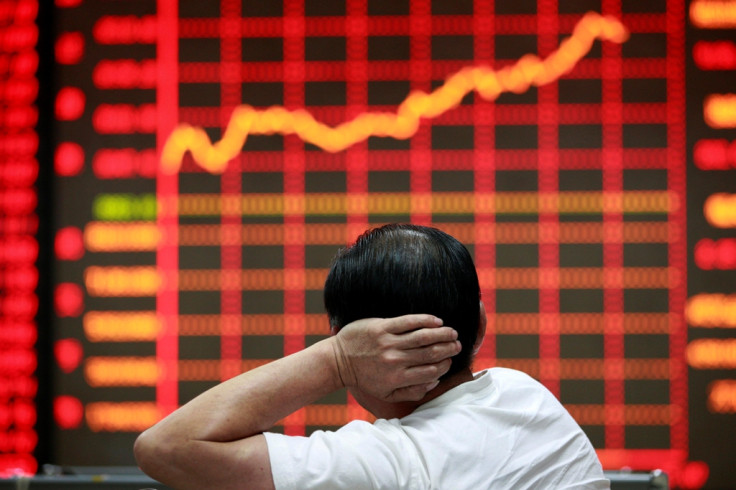Asian Markets Jump as China Rate Cut Boosts Optimism
Beijing's surprise interest rate decision raises hopes for better growth in China.

Asian markets outside Japan jumped on 24 November as China's unexpected interest rate cut raised hopes for better growth in world's second-largest economy.
Japanese markets were closed for the Labor Thanksgiving holiday.
The Shanghai Composite finished 1.85%, or 46.09 points, higher at 2,532.88.
Hong Kong's Hang Seng finished 1.95%, or 456.02 points, higher at 23,893.14.
Australia's S&P/ASX finished 1.08%, or 57.50 points, higher at 5,361.80.
South Korea's Kospi finished 0.70%, or 13.70 points, higher at 1,978.54.
And India's S&P BSE Sensex was trading 0.61%, or 173.42 points, higher at 28,508.05.
Company Stock Movements
In Shanghai, Founder Securities and real estate developer Poly Real Estate surged 10% each.
In Sydney, resources firms surged on hopes that China's interest rate decision will boost the demand and prices for commodities. Fortescue Metals shot up some 10% while Mount Gibson Iron and BC Iron added 6% each.
BHP Billiton added 3.8% after the world's biggest miner promised further cost cuts.
In Seoul, automaker Hyundai Motor added 4%.
China Rate Cut
The People's Bank of China on 21 November lowered the benchmark loan and deposit rates in a bid to boost Chinese economic growth.
The PBoC, in a statement, explained its decision as a reaction to the reduced ability of some enterprises, in particular small- and micro-enterprises, to afford their interest expense given the downward pressure on economic growth and the difficult business operating environment.
The PBoC described its decision as intended to maintain a "neutral monetary policy environment for the economy's continued healthy development."
But Capital Economics warned that the impact of the central bank's move on Chinese GDP growth "will be small."
Capital Economics said in a note: "The People's Bank of China cut benchmark interest rates on [21 November] after calling for lower financing costs earlier in the week. The cut to the 12m lending rate by 40bps to 5.6%, and to the 12m deposit rate by 25bps to 2.75%, is a major - and largely unanticipated - change of tack."
"The reduction in the lending rate will mainly benefit the larger, typically state-owned firms that borrow from banks. The financing costs of smaller firms, which borrow from the shadow banking sector, will not be affected.
"And without any relaxation in the quantitative limits on bank lending, a rate cut simply lowers the cost of credit, but doesn't increase the amount supplied. Accordingly, the impact on GDP growth will be small," Capital Economics added.
© Copyright IBTimes 2025. All rights reserved.




















